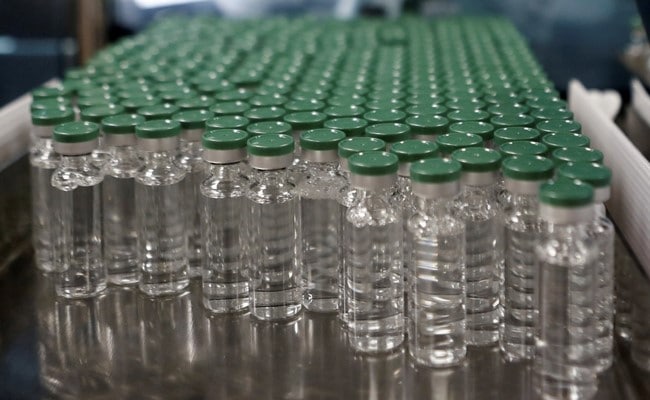The Covishield coronavirus vaccine was developed by AstraZeneca and the University of Oxford (Archive)
New Delhi:
The Oxford coronavirus vaccine “will protect 95 percent of patients” and is “as effective as the Pfizer and Moderna alternatives,” AstraZeneca chief executive Pascal Soriot told the British newspaper The Sunday Times, adding that scientists had discovered a “winning formula to be effective up there with everyone”.
However, AstraZeneca, a British-Swedish pharmaceutical giant, has not yet released data to confirm these claims. The interim results from the Phase III studies released last month showed an efficacy rate of 70 percent as the average of two dosing regimens. One such regimen – half a dose followed by a full dose – showed 90 percent effectiveness, while Pfizer data showed 95 percent and Moderna data 94.5 percent.
Soriot also said that the vaccine, which is likely to be released this week by the British regulator, “must be” effective against an aggressive mutant strain of the virus first detected in London and southeastern England in September.
The Oxford vaccine, which will be mass produced in India by the Serum Institute in Pune, is one of three drugs considered for emergency use authorization by the Indian government. The other two are those developed by Pfizer (which has already been launched in the United Kingdom, the United States and several European countries) and Covaxin, by Bharat Biotech.
On Saturday, sources told the PTI news agency that the DCGI (General Controller of Medicines in India) was waiting for the British drug regulator to release the Oxford vaccine.
Given that Pfizer has not yet submitted its data and Bharat Biotech has not yet completed Phase III testing, it is likely, the sources added, that the drug AstraZeneca-Oxford will become the first Covid vaccine to be used in India. It also outperforms its rivals by at least two critical points – ease of storage and cost.
While the Pfizer vaccine needs to be stored at minus 70 degrees Celsius and the Modern variant at minus 20 degrees Celsius, the Oxford vaccine can be kept at normal refrigerator temperatures – two to eight degrees Celsius. The difference can be crucial for a country as big as India.

The Oxford vaccine must also be cheaper than the Pfizer and Moderna options; it is likely to cost $ 2.5 per dose, against $ 20 for Pfizer and $ 25 for Moderna. All three require a two-dose regimen.
The Indian government has started to prepare for a national launch of any vaccine that is released first. During Monday and Tuesday, four states – Punjab, Gujarat, Assam and Andhra Pradesh – will participate in testing the vaccination process.
India hopes to start vaccination “any week” in January, said Union Health Minister Dr Harsh Vardhan. On Sunday morning, the country reported 2.79 lakh of active cases from Covid. The total number of cases since the pandemic began in December last year is about 1.02 crore.
With PTI input
